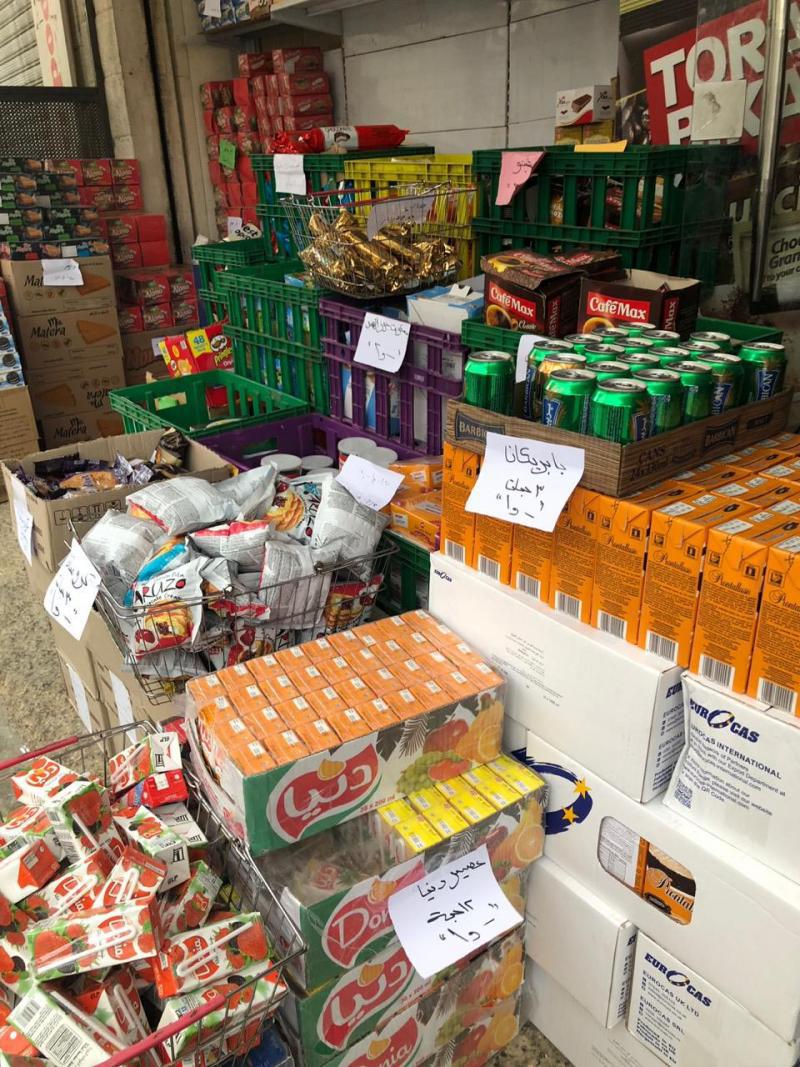Nearly expired food is an inexpensive alternative for Jordanians in Ramadan
AMMAN - During the Muslim fasting month of Ramadan, demand for food increases, prices skyrocket and markets thrive across the Arab world. In Amman, a special market flourishes because it sells products nearing expiry at less than half the original price.
Special treats and diverse dishes are prepared for iftar, the evening meal with which Muslims end their day-long Ramadan fast. The economic recession in Jordan, compounded with an increase in taxes, has driven Jordanians to look for cheaper products despite government efforts to increase food safety and awareness.
“There is no doubt that demand for food products rises during Ramadan and expenditure on food and drinks almost doubles, creating additional financial burdens on families who see their spending grow to an average of $850,” said economist Husam Ayesh
The Jordanian Department of Statistics said 17% of Jordanian households earn less than $585 per month.
Products available at the convenience market are mostly 2-5 days from the expiry date. On some items, the date is erased. Despite poor storage conditions, the market has many customers happy to pay lower prices, especially for imported goods.
“We buy products from malls and traders with dates nearing expiry and sell them to customers and they are in excellent condition,” said the owner of a convenience store in Amman, who asked to be identified as Abu Mohammed.
“The expiry date does not mean much as it says it is better to be consumed before a certain date but it does not say eating this product is dangerous to health,” Abu Mohammed said.
“There are some products that some people cannot afford to buy because of their high price, especially imported food items. Here, they can buy them for much less. I am sure they look at the expiry date but, at the end, it is their decision.”
The issue of the expiry date is like the “5-second rule,” a cultural food hygiene concept that suggests there is a defined period during which it is permissible to pick up the product. Global studies have underlined the difference between “best before” and “expiry dates” because they carry different meanings.
“Consumers should understand that ‘expiry date’ means the last day a product is safe to consume while ‘best before’ means that the food is no longer in its perfect shape from that date, which means it might lose its taste, nutrients and freshness but it can be still consumed,” said nutritionist Ghadir Hourani.
“People should not take risks especially when it comes to expiry dates because many have been poisoned due to consuming expired products.”
In 2007, 193 people were sickened and one died after eating expired shawarma meat or doner kebab. This led to the closure of the shop. In another incident, 500 kilograms of recycled yogurt were found at a shop. The owner had bought expired yogurt, repackaged it and sold it as fresh.
“I always come here for shopping. It is often a bargain and too good to be true. I cannot afford a bar of chocolate for $7 in the supermarket while I can buy it here for $1, even though it says it will expire in 5 days,” said Mohammed El Khalil, a nightshift guard. “There are many products that carry expired dates but still are in good shape.”
“Some traders tamper with the expiry dates and even malls place stickers with a new expiry date to take advantage of the high demand during Ramadan but the shop I buy from does not and it is up to us to buy or not,” he added.
Another consumer, Ahmed Qahwaji, a taxi driver, said the convenience shops make it possible for poor people to fill their iftar tables.
“These shops have a variety of products, such as canned food, sweets and drinks that I can buy ten bottles of juice for $1.40 (normal price $1.40 per bottle), eight pieces of Turkish chocolate for $1.40 (regular price $1 per piece) and 12 packed juices for the children for school for $1.40 (real price $5 per 12). Do you see why we come here?” Qahwaji said.
“Death is all in God’s hand! We will not die from what we buy cheaply. If it looks good and smells good, then it is edible,” he added.
Weeks before Ramadan starts, Jordanian markets are stocked with products that are sold at competitive prices for those who can afford them but for those who cannot often the only way option is to visit convenience markets.
Roufan Nahhas, based in Jordan, has been covering cultural issues in Jordan for more than two decades.
This article was originally published in The Arab Weekly.





